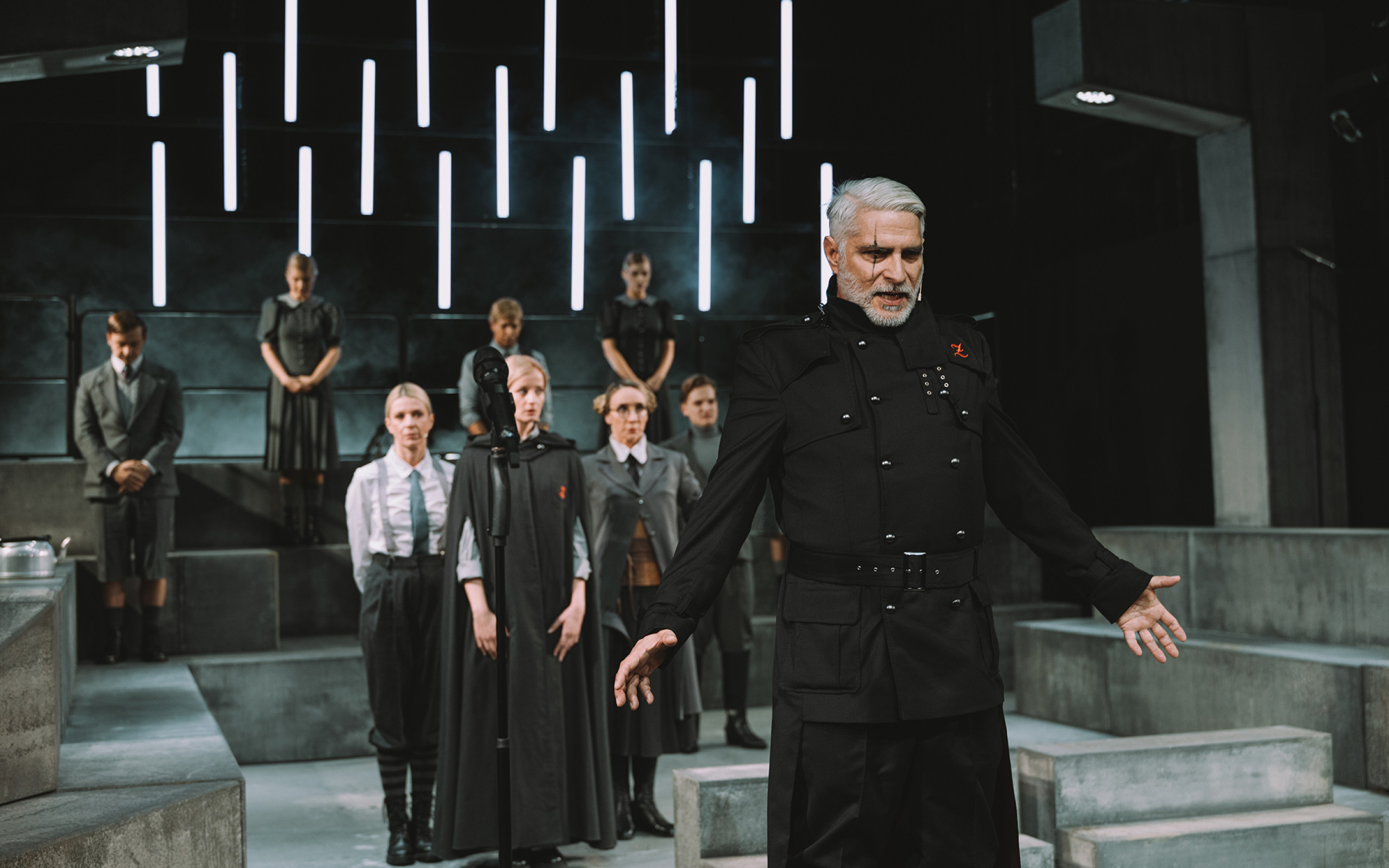Jevgenij Švarc, Laurence Senelick
The Dragon
On his journey, the knight Lancelot stops in a city ruled for four hundred years by a terrible three-headed dragon, a ruthless exploiter and ruler who chooses a new girl every year to devour her. Yet the townspeople loyally accept his tyranny. For two hundred years, no one has openly confronted the dragon, and some even admire it. The heroic and good-hearted Lancelot, eager to free the city, challenges the dragon to a duel. In order to get rid of his challenger before the fight, the dragon resorts to various tricks by shamelessly deceiving, bribing, blackmailing and inciting murder. Lancelot is amazed that even the townspeople with their mayor discourage him from rescuing them. In the end, however, the knight defeats the dragon and the town is saved. But when Lancelot returns a year later, he is astonished to find that almost nothing changed in the town. In the meantime, the former mayor has ascended to the position of a tyrant, and now even proclaims how he himself slayed the dragon, while he appoints his son as the new mayor. Lancelot realises that the dragon’s reign has left behind depraved souls and that true freedom would require slaying the dragon in each individual.
Eugeny Schwartz (1896-1958), a Soviet writer and playwright, was a fierce opponent of the autocratic regime of the Soviet Union. He wrote the political satire The Dragon, set in the framework of a fairy tale, in 1944, but it was banned from being staged immediately after its premiere. The play was not staged again until 1962, almost ten years after Stalin’s death. In a series of absurdly comic situations, Schwartz uses irony and sarcasm, metaphors and witty twists to criticise the methods of totalitarian rule – the assertion of power, total control and the suppression of all diversity. But he is also relentless of the apathy of people who bow to all this. Today, at a time of the resurgence of the radical right, the escalation of totalitarian ideas and the increasing concentration of capital in the world, the text The Dragon is once again topical and raises a number of relevant questions. For this production we will use a more recent translation and adaptation by the American professor Laurence Senelick, a great expert on Russian literature, especially drama.
Director Nela Vitošević (1984) is one of the most prominent representatives of the middle generation of Macedonian theatre makers. She was introduced to Slovenian theatre lovers in 2022 at the Ruta Festival, where she presented her production My Husband by Rumena Bužarovska, produced by the Skopje Drama Theatre. In this production, she addressed the neuralgic points of patriarchy in a fresh and personally engaging way. She also dealt with a similar theme in 2023, when she directed Ibsen’s acclaimed play Nora at the Ljubljana City Theatre, with a contemporary approach.
Дракон (The Dragon, 2012) , 1944
Satire
First Slovenian Production
Premiere: 27. November 2025
Performance length is 1 hour and 45 minutes and has no pause.
Creators
Translator
Boštjan Gorenc
Adaptation
Nina Kuclar Stiković and Nela Vitošević
Director
Nela Vitošević
Dramaturg
Nina Kuclar Stiković
Set designer
Igor Vasiljev
Costume designer
Jelena Proković
Composer
Val Fürst
Language consultant
Barbara Rogelj
Lighting designer
Boštjan Kos
Sound designer
Gašper Torkar
Assistant to costume designer
Saša Dragaš
Actors
The Dragon
Sebastian Cavazza
Lancelot
Filip Samobor
Charlemagne
Mojca Funkl
Elsa
Ajda Smrekar
The Mayor
Uroš Smolej
Henry
Matevž Sluga
The Cat
Tjaša Železnik
Town girl
Tanja Dimitrievska
Town girls
Veronika Železnik as guest
Town girl
Julita Kropec as guest
Citizen, Guard, Jailer
Joseph Nzobandora – Jose
Opening in November 2025

